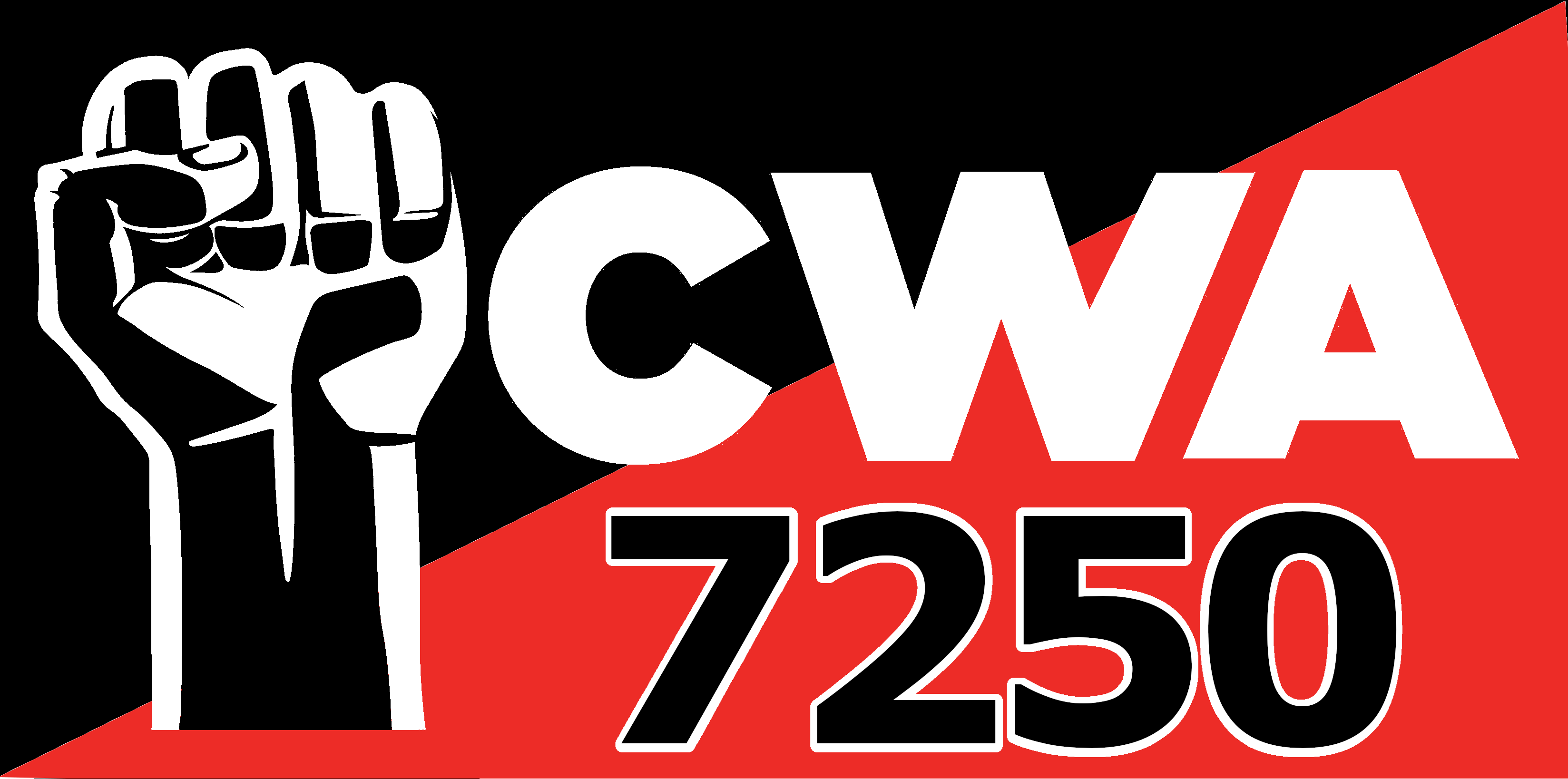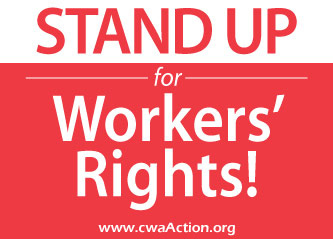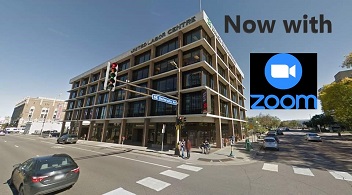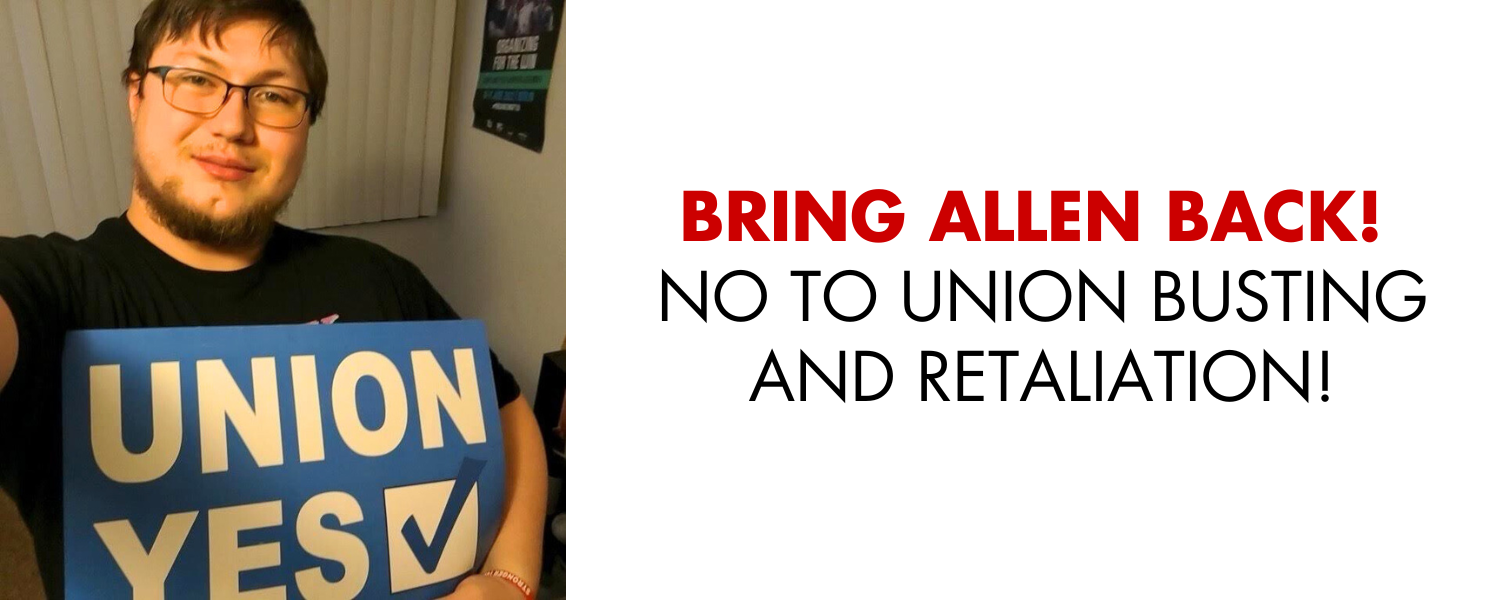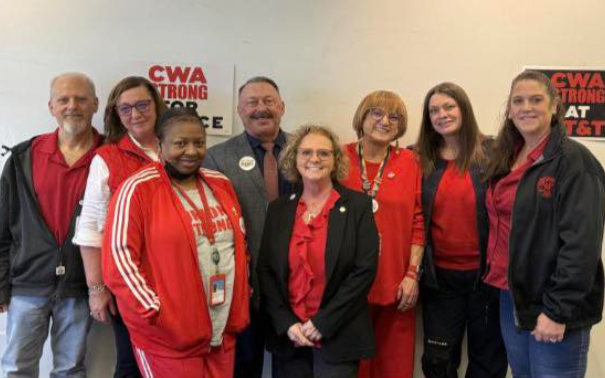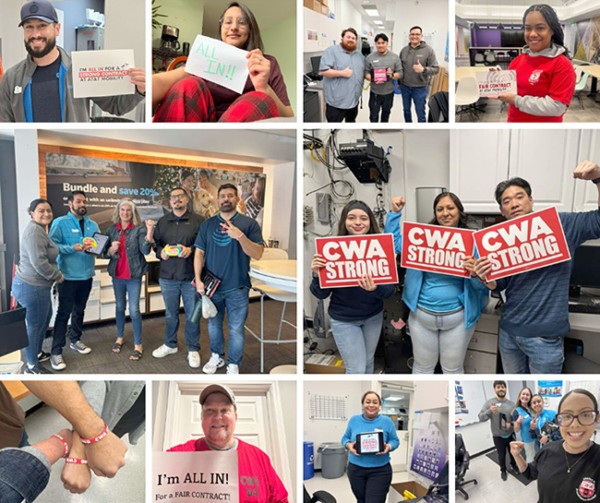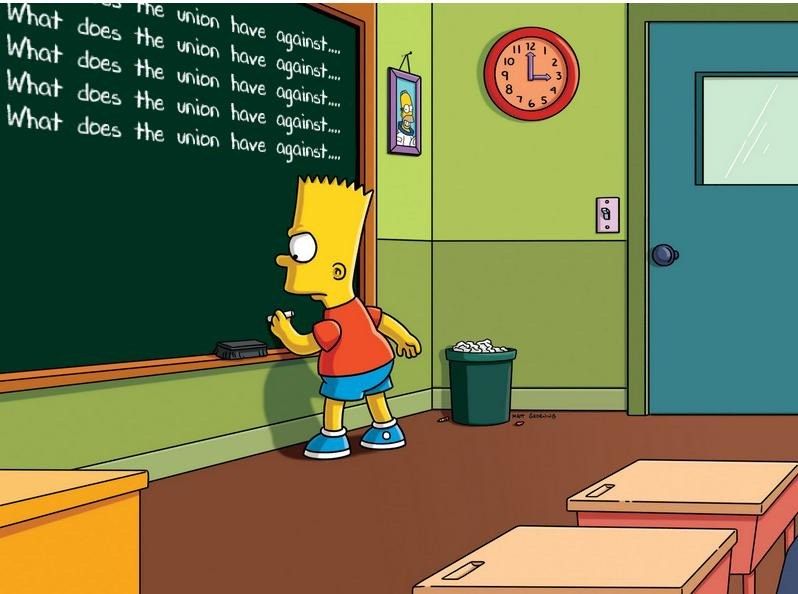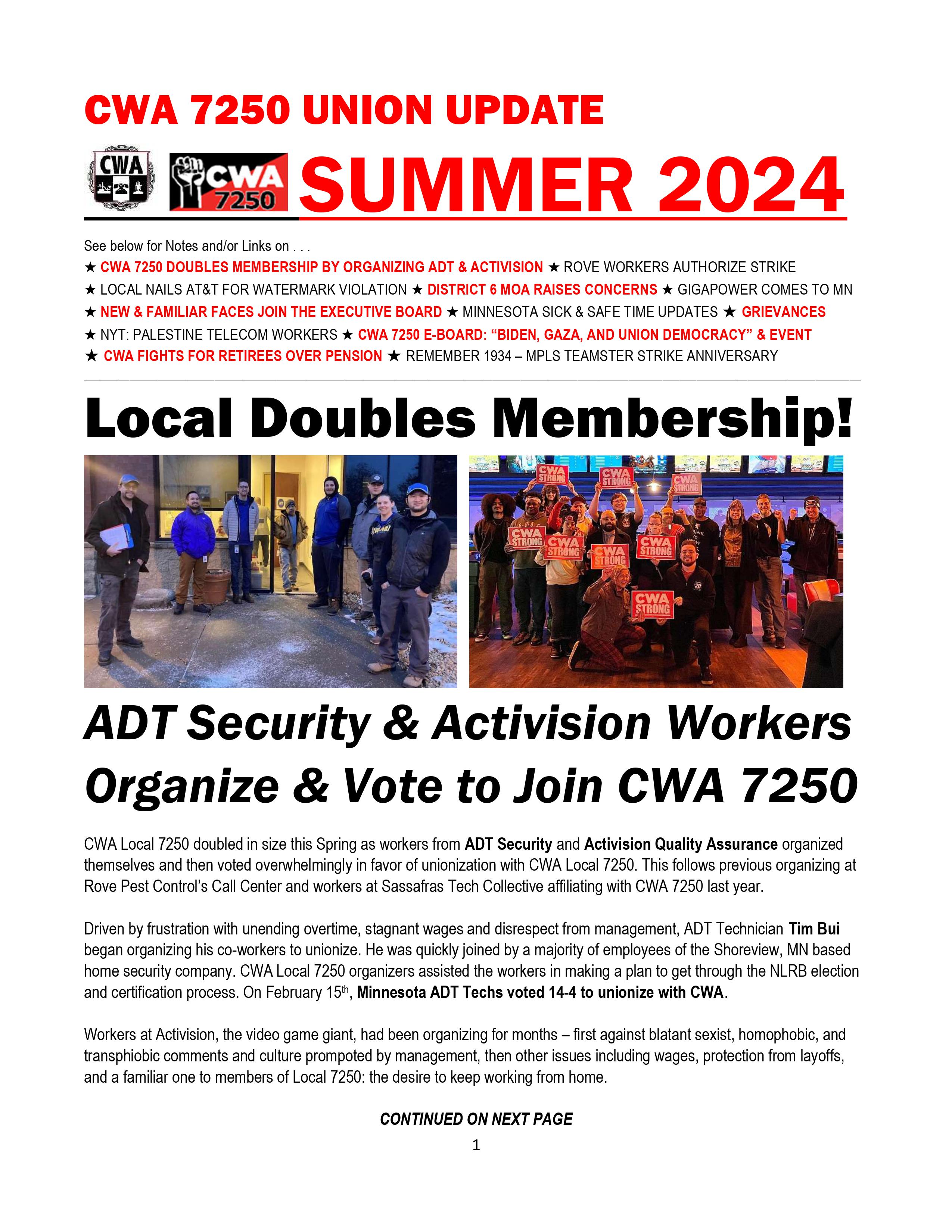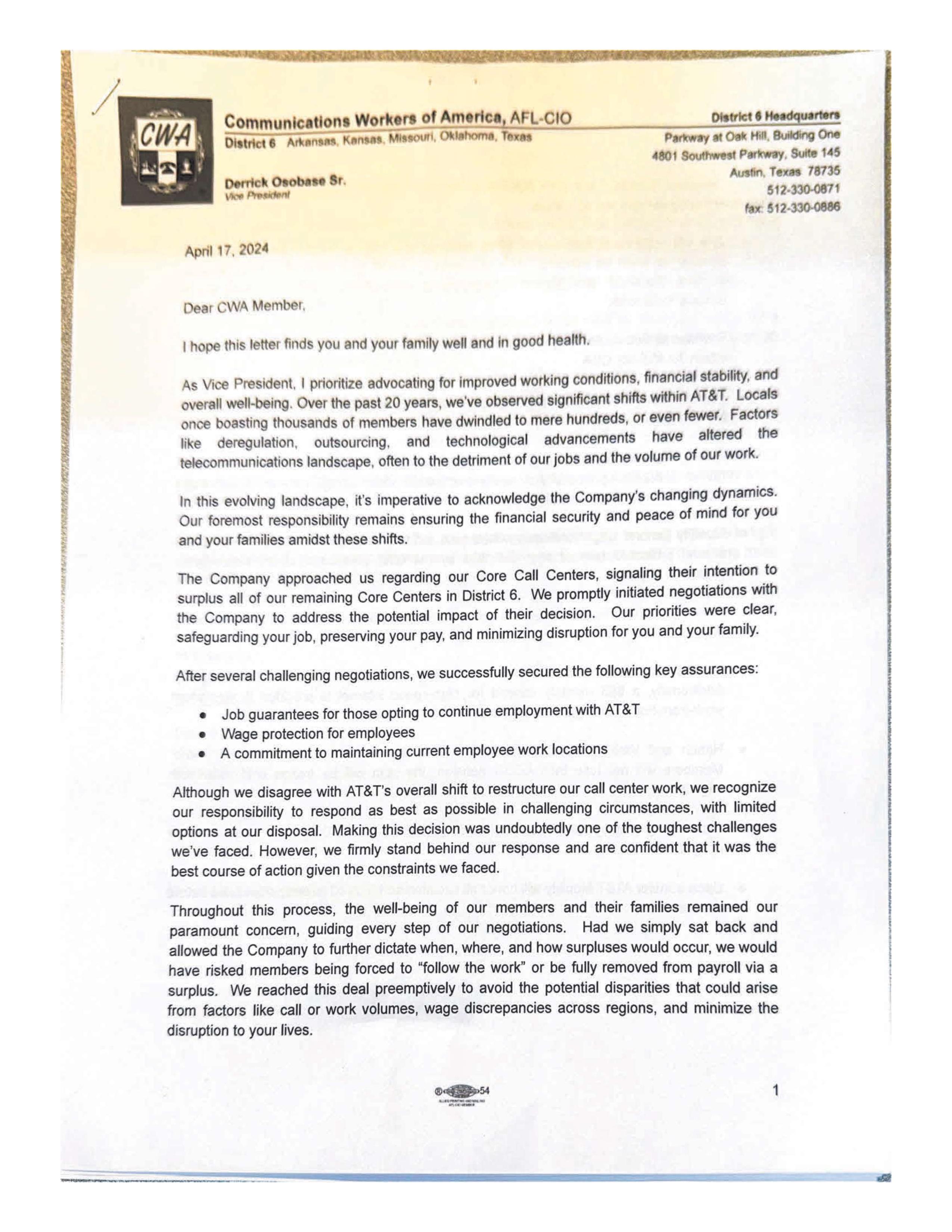Rove Pest Control Bargaining Report #33
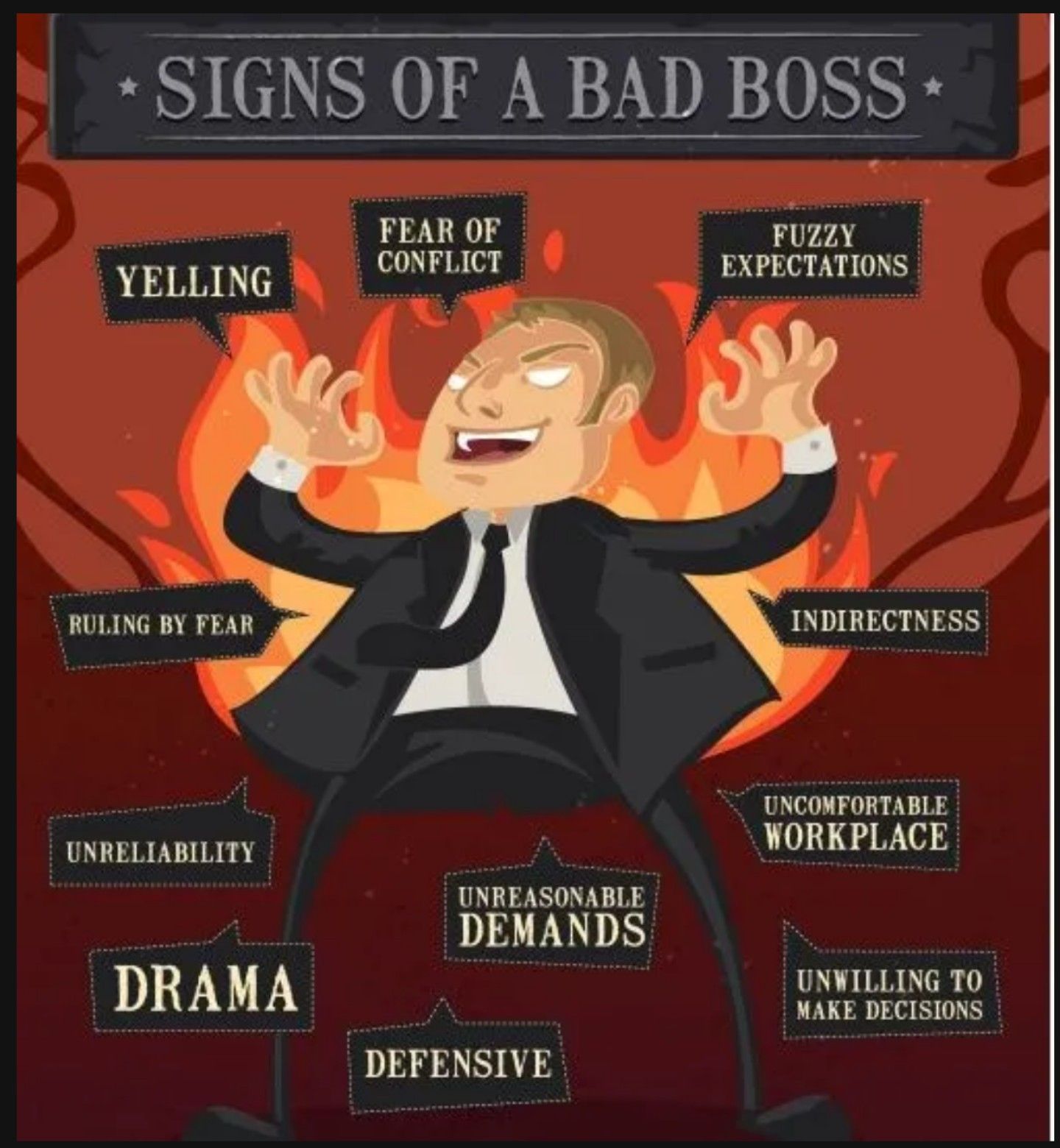
Bargaining report #33.
Yes brothers and sisters we are down to memes for Bargaining reports. We like to stand in solidarity with our CWA brothers and sisters in district 3 out on ULP strike!!!
- Details
Union Update - SUMMER 2024
CWA 7250 - Union Update - Summer 2024
Please see attached CWA 7250 Union Update newsletter for information on:
★ CWA 7250 DOUBLES MEMBERSHIP BY ORGANIZING ADT & ACTIVISION ★ ROVE WORKERS AUTHORIZE STRIKE ★ LOCAL NAILS AT&T FOR WATERMARK VIOLATION ★ DISTRICT 6 MOA RAISES CONCERNS ★ GIGAPOWER COMES TO MN ★ NEW & FAMILIAR FACES JOIN THE EXECUTIVE BOARD ★ MINNESOTA SICK & SAFE TIME UPDATES ★ GRIEVANCES ★ NYT: PALESTINE TELECOM WORKERS ★ CWA 7250 E-BOARD: “BIDEN, GAZA, AND UNION DEMOCRACY” ★ REMEMBER 1934 – MPLS TEAMSTER STRIKE ANNIVERSARY ★
[PDF Attached below]
- Details
CWA District 6 MOA with AT&T Causes Concern
CWA District 6 MOA with AT&T Causes Concern
This Spring we started hearing whispers that CWA District 6 (Missouri, Oklahoma, Kansas, Arkansas, and Texas) had signed a precedent-setting agreement with AT&T moving hundreds of call center workers from the AT&T Southwest Core Contract into the Purple Mobility Contract. While the agreement has seniority and pay protections for these workers – there were several major concerns across CWA.
The Mobility contracts are much younger than the traditional core AT&T-CWA Telecom contracts, and therefore weaker – considerably so in some instances, Call Center pay scales being a major one. Mobility contracts have generally functioned as a second, lower “tier” within telecom and CWA – so pushing hundreds of workers into a second-tier contract, rather than raising Mobility workers into the wages, rights and benefits of the Core contracts is worrisome
How and why was this agreement signed? The workers in District 6 were impacted more than anyone in this unprecedent move, but didn’t get a heads up – let alone a voice in the decision. CWA D6 VP Osobase maintained that the agreement was neccesary. Osobase said AT&T had threatened to surplus all of the D6 Call Centers and that this agreement will secure jobs, protect pay, and maintain workplaces.
We have made relevent documents available on our CWA Local 7250 website, so workers in our Local and across the Union can review the facts and make their own judgement about this move. There is no doubt that the Company will seek to replicate this contract-transfer in other Districts and Units - including the Legacy T Core Contract and the Orange Mobility Contract. What we have to do is to fight to make these changes on our terms and in our interests – not those of the telecom oligarchs.
ATTACHMENTS:
1. AT&T FAQ Mobility Purple - SW Wireline MOA
2. Letter from CWA District 6 VP Osobase, Sr.
- Details
Page 15 of 42
